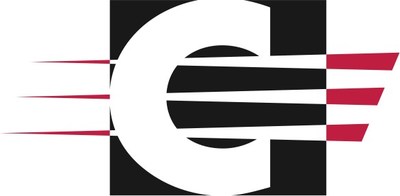CONSOL Energy Coal Shipments Resume from Its Marine Terminal in Baltimore
CONSOL Energy announced the resumption of coal shipments from its Baltimore Marine Terminal following a shutdown caused by the collapse of the Francis Scott Key bridge on March 26. The first shipment, which departed on May 21, carried 56,000 net tons compared to the usual 140,000 net tons. CEO Jimmy Brock expressed optimism about returning to normal operations soon, despite current limitations on ship size and night-time departures. The reopening is important for the company's shift toward export markets, which accounted for 65% of its total recurring revenues in Q1 2024. The channel is now 350 feet wide, needing an additional 50 feet clearance for larger vessels.
- Resumption of operations at the Baltimore Marine Terminal.
- First shipment post-reopening carried 56,000 net tons.
- Export markets contributed 65% of Q1 2024 revenues.
- Optimism about returning to normal operations soon.
- Terminal's operational capacity aligns with the company's export strategy.
- Current shipments are to smaller vessels due to channel width.
- Shipments are below the usual 140,000 net tons capacity.
- Ongoing restrictions on the size of ships and night-time departures.
Insights
The resumption of coal shipments from CONSOL Energy's Marine Terminal in Baltimore after the disruption caused by the Francis Scott Key bridge collapse is a significant development for the company. Although the shipments are currently smaller at 56,000 net tons compared to the usual 140,000 net tons, this movement is a positive sign toward recovery. The near-term financial outlook might still be constrained by the reduced capacity, but the long-term prospects look promising as normal operations are expected to resume eventually. Given that 65% of CONSOL's Q1 2024 revenues came from export markets, the ability to ship again is pivotal for maintaining their revenue stream and market position.
Short-term investors should monitor updates on the operational status of the Marine Terminal and shipping capacities, as these could influence quarterly earnings. Long-term investors might view this as a minor setback in the broader context of CONSOL's extensive coal reserves and operational capacity.
Understanding the broader market implications, the resumption of coal shipments from CONSOL's terminal is a important step in maintaining their competitive edge in the export market. The U.S. coal market, particularly for high-Btu bituminous thermal coal and metallurgical coal, remains competitive and any disruption in supply can be detrimental. However, CONSOL's swift action to restart shipments mitigates some potential market share loss.
Another point to consider is the indirect impact on global coal prices. Any prolonged disruption from a major player like CONSOL could have caused price volatility in the international markets. By resuming shipments, even at a reduced capacity, CONSOL helps stabilize market expectations and prices, which is beneficial for both the company and the industry.
From a logistics perspective, the immediate challenge for CONSOL Energy lies in clearing the channel to accommodate larger vessels. The current limitation of 350 feet versus the required 400 feet for full-capacity shipments is a bottleneck. This impacts the efficiency of their supply chain and may lead to increased shipping costs per ton due to the smaller shipment sizes. The logistical efforts to widen the channel will be important in restoring operational efficiency.
Retail investors should understand that while the company is making strides in resuming operations, the logistics constraints might mean incremental progress in shipment sizes and frequency until full capacity is restored. The timeline for this will be critical in evaluating short-to-mid-term impacts on CONSOL's performance.
The first empty ship arrived at the CONSOL Marine Terminal early Sunday morning, was loaded throughout that day and awaited clearance from officials for the 7:00PM departure time Monday night.
According to CONSOL Energy CEO Jimmy Brock, "While we are still limited in terms of size of ships and night-time departures, we are hopeful to resume normal operations as soon as possible. We want to thank the leadership and hard work of local, state and federal officials and various agencies for their quick and thoughtful response."
The first shipment leaving the Marine Terminal was approximately 56,000 net tons, compared to traditional shipments of about 140,000 net tons in larger vessels. The channel is now cleared to about 350 feet wide and needs to be about 400 feet wide to accommodate larger vessels.
In related news, the MV Dali, the container ship that collided with the bridge, was refloated and removed Monday.
Brock added, "The ability to ship product from the
CONSOL Energy Inc. (NYSE: CEIX) is a
Contacts: | |
Investor: | Nathan Tucker, at (724) 416-8336 |
Media: | Erica Fisher, at (724) 416-8292 |
Cautionary Statement Regarding Forward-Looking Statements:
Certain statements in this press release are "forward-looking statements" within the meaning of the federal securities laws. With the exception of historical matters, the matters discussed in this press release are forward-looking statements (as defined in Section 21E of the Securities Exchange Act of 1934, as amended) that involve risks and uncertainties that could cause actual results to differ materially from results projected in or implied by such forward-looking statements. These forward looking statements include statements about CEIX's options and ability to minimize or address direct and indirect impacts to the company, its business, operations, financial conditions or otherwise relating to the collapse of the Francis Scott Key Bridge near the Baltimore Port including, but not limited to, the ability to move coal tons through open terminals, increasing domestic shipments, asserting force majeure under applicable contracts and successfully recovering insurance with respect to any losses or other damages as a result of the impact of the collapse of the bridge on our business, operations and financial conditions. Accordingly, investors should not place undue reliance on forward-looking statements as a prediction of actual results. The forward-looking statements may include projections and estimates concerning the timing and success of specific projects and our future production, revenues, income and capital spending. When we use the words "anticipate," "believe," "could," "continue," "estimate," "expect," "intend," "may," "plan," "predict," "project," "should," "will," "would," "target," or their negatives, or other similar expressions, the statements which include those words are usually forward-looking statements. When we describe our expectations with respect to the direct or indirect impact from the collapse of the bridge that involves risks or uncertainties, we are making forward-looking statements. We have based these forward-looking statements on our current expectations and assumptions about future events. While our management considers these expectations and assumptions to be reasonable, they are inherently subject to significant business, economic, competitive, regulatory and other risks, contingencies and uncertainties, most of which are difficult to predict and many of which are beyond our control. Specific risks, contingencies and uncertainties are or may be discussed in the future in more detail in our filings with the Securities and Exchange Commission. The forward-looking statements in this press release speak only as of the date of this press release and CEIX disclaims any intention or obligation to update publicly any forward-looking statements, whether in response to new information, future events, or otherwise, except as required by applicable law.
![]() View original content to download multimedia:https://www.prnewswire.com/news-releases/consol-energy-coal-shipments-resume-from-its-marine-terminal-in-baltimore-302150831.html
View original content to download multimedia:https://www.prnewswire.com/news-releases/consol-energy-coal-shipments-resume-from-its-marine-terminal-in-baltimore-302150831.html
SOURCE CONSOL Energy Inc.








